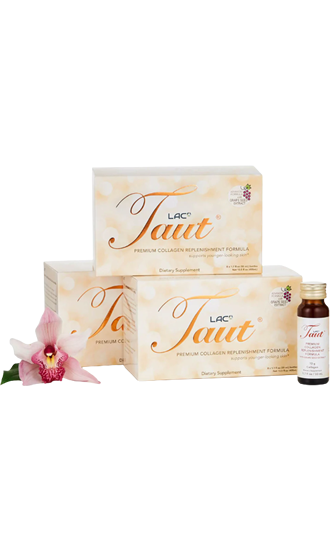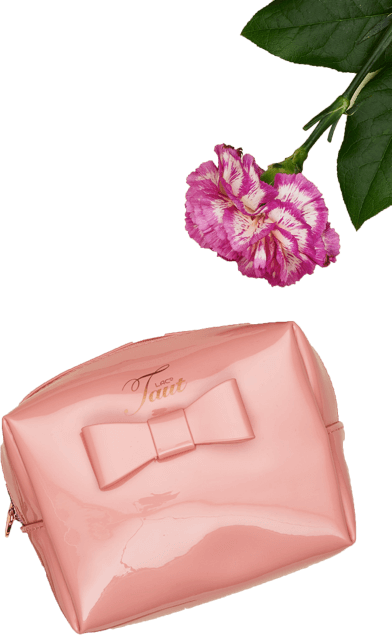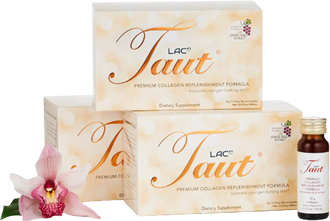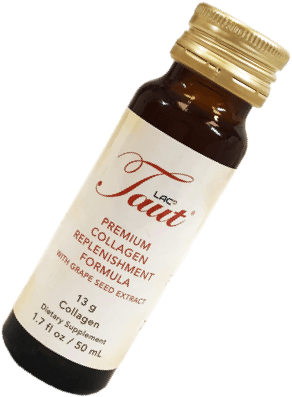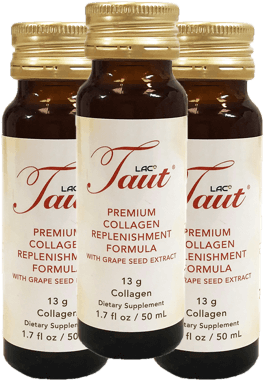Top 5 Myths About Collagen
Uncover the myths and misconceptions surrounding collagen supplements.
 These days, nearly everyone has heard of powder or liquid collagen and its importance for skin health, but what you may not be aware of is that you may have been lied to about collagen and collagen supplements.
There has been much misinformation spread about collagen supplements and their benefits, but today we’ll help you learn how to tell the difference between the many truths and falsehoods that abound regarding collagen supplements.
For some of you, the idea that you need collagen for skin health could still be a myth.
Do collagen supplements really work? And can you really look younger with collagen peptides? Do you need collagen with vitamin D, calcium or is this just pure marketing?
According to health experts, collagen can:
These days, nearly everyone has heard of powder or liquid collagen and its importance for skin health, but what you may not be aware of is that you may have been lied to about collagen and collagen supplements.
There has been much misinformation spread about collagen supplements and their benefits, but today we’ll help you learn how to tell the difference between the many truths and falsehoods that abound regarding collagen supplements.
For some of you, the idea that you need collagen for skin health could still be a myth.
Do collagen supplements really work? And can you really look younger with collagen peptides? Do you need collagen with vitamin D, calcium or is this just pure marketing?
According to health experts, collagen can: - Improve skin health and reduce signs of aging
- Help relieve joint pain
- Strengthen your hair and nails
- Improve gut health
- Help improve muscle mass
Myth 1 - Collagen Supplements Don’t Work Because Collagen Gets Broken Down in Our Digestive Tract
Many doctors don’t believe ingesting collagen is effective because they claim that the collagen molecule is too large for the body to absorb, and thus no different from eating a piece of meat.
Some doctors believe the only way to replenish your skin collagen is by injecting collagen, hyaluronic acid, or retina A to peel off top layer of your skin to stimulate collagen production.
So, can collagen be absorbed orally?
Well, they’re right and wrong.
The doctors are right that collagen is a major building block of our body and our most abundant protein. In its native state, the collagen molecule is too large to be absorbed effectively by the intestine. In fact, collagen is often referred to as a “super molecule” because it is so large, with a molecular weight of 300,000 Daltons.
Yet they are also wrong because, most recently (about 15 years ago), the Japanese invented and patented the technology known as hydrolysis that can break down collagen super size molecule into tiny molecules (avg about 3000-5000) known as hydrolyzed collagen or most commonly collagen peptides.
Why Is Hydrolyzed Collagen Different & Effective?
Collagen is a building block of the body and the most abundant protein in animals. In its native state, the collagen molecule is too large to be absorbed effectively by the intestine. This is the reason why many medical experts believe that ingesting collagen is not a viable option to improve skin health.
Hydrolyzed collagen molecules, similar to those found in bone broth, are tiny enough (avg. 5000 daltons) to be absorbed into the bloodstream, owing to the process of hydrolysis, which was a technology patented by the Japanese.
So, to answer the question “can collagen be absorbed orally?” the answer is a clear yes, as long as it’s hydrolyzed.
The hydrolysis process breaks the collagen supermolecule down into small, bioavailable components, similar to how our bodies break down food during digestion. As a result, hydrolyzed collagen is immediately available for absorption and utilization.
During the hydrolysis process, the collagen molecule is broken down into micro-sized fragments, called collagen peptides, which have an average molecular weight of 5000 Daltons, making it easier to absorb as part of a balanced diet. This makes them small enough to be readily absorbed through the intestine and then into the bloodstream.
Collagen peptides enter the bloodstream and travel through blood vessels, distributing nutrients throughout your body, similarly to other nutrients absorbed from food. These eventually make it to your joints, bones, eyes, gut, heart, nails, hair, brain, ligaments, skin, and other parts of your body.
Clinical studies have shown an increase in the amount of collagen peptides in the blood after participants took hydrolyzed collagen. Once these complex proteins enter your body, they create a chain reaction that should result in tangible results. Folks who are looking for better joint and ligament health are likely to experience less discomfort, while those seeking smooth skin should notice a change in appearance after a few weeks.1
Myth 2 - Collagen Peptides are Absorbed into the Dermis of the Skin & Automatically Become Collagen
Your body naturally produces collagen in abundance during your youth, but as you age, collagen levels decline, starting around the age of 35. By the time you are 30 years old, collagen levels start to decrease significantly. Collagen that makes up 75% of our skin is created by fibroblasts, which are specialized cells located in the dermis of your skin. Think of it like the collagen factory house.
Using collagen creams on skin that is naturally deficient or has suffered damage can help revitalize a specific area of your body. While this may be true, it has also led to the development of another popular myth, which says that taking a collagen supplement directly refills your skin, like fuel in a vehicle.
Many people assume that if you take hydrolyzed collagen supplements, the hydrolyzed collagen you ingest is distributed to the dermis of the skin and then automatically becomes collagen. However, after hydrolyzed collagen enters your bloodstream, additional conditions have to happen before the synthesis of collagen fibers takes place.
When taken orally, hydrolyzed collagen reaches the small intestine, and then it is absorbed into the bloodstream in the form of free amino acids and small collagen peptides. Free amino acids and small collagen peptides are distributed throughout the body and to the dermis through the network of blood vessels and into our skin.
In the dermis, the presence of collagen peptides, along with the inclusion of Vitamin C from citrus fruits, stimulates fibroblasts to produce collagen and elastin by binding to the receptor sites on the fibroblast membrane. Acting much like a factory, the more concentrated collagen peptides are present, the more collagen gets produced. In addition, the presence of Vitamin C is also an important cofactor in collagen synthesis. Together they speed up the production of collagen.
Tone, Hydrate, & Brighten Your Skin With a Collagen Face Mask
In addition to the fact that collagen can be taken orally, a lot of people also ask “can collagen be absorbed into the skin? does topical collagen work?” and again, the answer is a resounding yes. Topical collagen applications, such as creams and collagen facial masks made with hydrolyzed collagen, allow the distribution of these directly to the skin. This is especially useful for people that want to target specific areas due to asymmetric skin aging or injuries.
Topical collagen applications work under the same concept as ingested supplements. The peptides accumulate in the dermis, which should encourage your body’s natural elastin and collagen production.
According to clinical trials, taking 10,000mg of hydrolyzed collagen per day significantly increases collagen density in the dermis and decreases fragmentation of the dermal collagen network.
Made using hyaluronic acid, squalene from olives, vitamin C, and hydrolyzed collagen peptides, our mask penetrates deep into the skin, providing you with red carpet radiance in just 15 to 20 minutes.
Created to target, dull, dehydrated, and sagging skin, you can sit back and relax while the ingredients work their magic!
Myth 3 - All Hydrolyzed Collagen is Created Equal
Not all forms of hydrolyzed collagen are created equal. The type of collagen used to make hydrolyzed collagen and peptides can vary, including bovine, chicken, porcine, and marine (fish) sources.
Bovine, chicken, and porcine collagen consist of mainly collagen type II, which is good for your joints, whereas marine collagen consists primarily of type I collagen.
Not only do type I and type II come from different sources, they actually have different physical qualities. For instance, fish-based type I often has smaller molecules, which means it’s easier for your body to absorb it. Furthermore, different types of collagen react differently when ingested with other supplements and vitamins, so pay close attention to which type you choose to take.
If you are looking to improve joint health, it’s best to take a collagen supplement made with type II collagen. If you want to enhance skin health and reduce wrinkles, taking a supplement that consists of type I collagen is crucial since our skin is made up of more than 80% type I collagen.
Bovine, chicken, and porcine collagen are found in many cosmetic products and supplements because they are cheaper to extract. However, marine collagen is a superior form of collagen because it is digested and absorbed by the body much more efficiently. Marine collagen extracted from the skin and scales of cold water fish has 1.5 times more bioavailability than bovine or porcine collagen. This means that it enters the bloodstream more quickly through the intestinal wall.
Choosing the supplement that has the right type of collagen is vital to achieving the desired results. In many cases, people purchase any type of supplement because they think it will help them achieve their goals, like improving skin health or overcoming severe injuries. The truth is that the type will determine the collagen supplement's effectiveness, so you have to pay attention to the source of the protein and the area of the body you want to target.
It is also more difficult to remove calcium and fat from bovine, chicken, and porcine collagen. Marine collagen has little to no calcium or fat, so people on a diet or who have high blood pressure can consume it without any concerns.
Myth 4 – Taking Protein Can Replace Taking Collagen for Improving Skin Health
There are many amino acid supplements on the market that are purported to build collagen since amino acids are the building blocks of all proteins. While amino acids have an abundance of health benefits, ingesting a certain amount of these building blocks does not guarantee the production of peptides or collagen itself.
Unfortunately, some people think that taking amino acid supplements can help them restore lost collagen, but it’s not the same thing as taking hydrolyzed collagen. Assembled collagen peptides travel through your bloodstream and are deposited in the dermis, so the body does not have to synthesize the compound.
A collagen molecule is made up of 20 amino acids that are bound together in a helix chain. Collagen is composed of a triple helix, generally consisting of two identical chains and a third chain with a slightly different composition.
Collagen is predominantly made up of the amino acids Glycine, Proline, and Hydroxyproline, which together represent about 50% of the total amino acid content. Additionally, there are more than 10 other amino acids which are assembled in a complex structure.
You need up to 18 amino acids in the right quantities and ratios to construct a complete collagen molecule helix chain. Oral collagen peptides ingestion is more effective because it’s already a complete molecule chain that consists of fragments small enough to be absorbed and transferred to the dermis layer of the skin.
While taking amino acids has many powerful health benefits, taking a hydrolyzed collagen supplement with hydrolyzed collagen will produce stronger and better results that address your health concerns.
Replenish Your Collagen on the Go With Taut Premium Collagen Powder
If you're looking to fit a quick collagen boost into your day, regardless or where you are, our Taut Premium Collagen Powder Sachets are perfect for you!
Designed to support healthy, glowing skin, these sachets can be taken whenever and wherever, making them perfect for the modern day woman.
Packed with a potent 5,000mg dose of hydrolized collagen peptides, our sachets also come with hyaluronic acid, and grapeseed extract to support your skin's structure. 
Myth 5 – Taking or Drinking Collagen Does Not Help to Reduce Wrinkles or Increase Elasticity
Collagen supplements have become the latest skincare must-have, but the more popular that collagen becomes, the louder the critics get. Taking collagen for skin health is becoming more and more common, especially due to improved formulas and effective delivery methods.
Despite the naysayers, collagen continues to be a buzzword among women. There is scientific proof that collagen supplements provide benefits for your skin. Moreover, many believe that taking hydrolyzed collagen may also help rejuvenate other parts of your body. Some people use collagen supplements to treat signs of aging and conditions that cause joint pain and physical discomfort.
Multiple clinical studies have shown that taking a high concentration of hydrolyzed collagen for an extended period can reduce wrinkles and improve skin elasticity. Also, the best evidence is the positive testimonials from both women and men, so the answer to the question “does oral collagen improve skin?” is yet another solid yes.
Remember that collagen is a naturally-occurring compound, and supplements only aim to jump-start your body’s natural production, so to speak. Although there are side effects associated with taking collagen, these are minor compared to pharmaceuticals and other mainstream anti-aging and treatment options.
Improve Skin and Joint Health with the Right Collagen Supplement
If you’re looking for a way to increase collagen production in your body, simply applying collagen cream won’t cut it. Consuming a collagen supplement or drink made with hydrolyzed collagen on a regular basis can help to stimulate collagen production in your skin and result in reduced wrinkles, increased elasticity, and a smoother complexion.
If you're debating which collagen supplement will work best for you, see our 7 Tips for Buying The Best Collagen Supplement. In this article, you’ll find all the information you need to choose the best type of collagen supplement and identifying the source according to the area of your body you want to target.
Ready to shop? Head on over to our SHOP and explore Taut Premium Collagen and collections now.
Providing you with 13,000mg of hydrolized marine collagen peptides with every bottle, our liquid collagen is packed with a mound of skin-loving nutrients. From hyaluronic acid to grapeseed extract, vitamin C, ceramide, and vitamin B6, we've created a formula that is perfect for combatting the early signs of aging.
Thanks to our Intense Transformation Program which includes three boxes of our liquid collagen, you can reduce fine lines and wrinkles, restore lost volume, and achieve a more toned and youthful complexion in just 21 days!
References:

